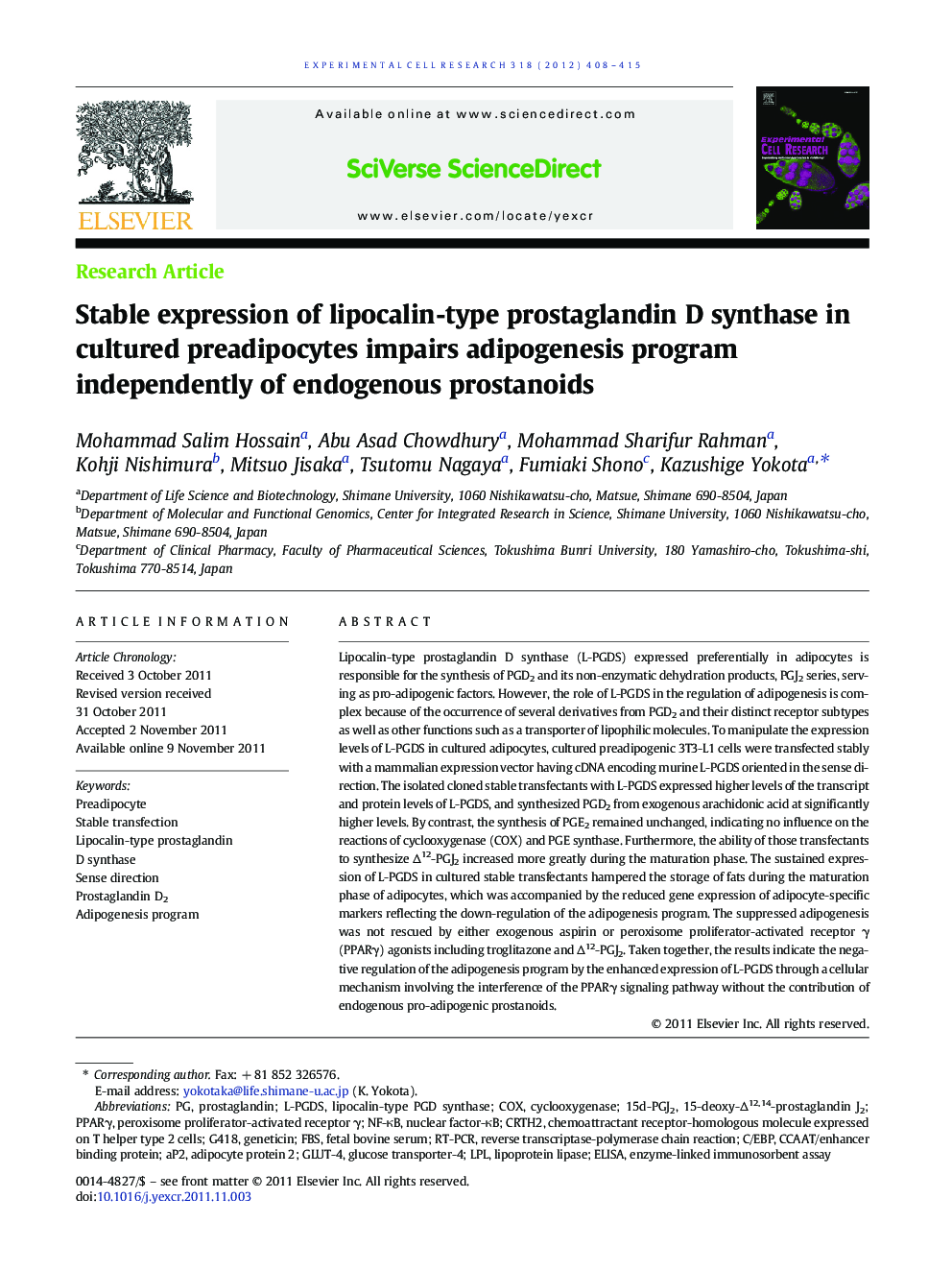| کد مقاله | کد نشریه | سال انتشار | مقاله انگلیسی | نسخه تمام متن |
|---|---|---|---|---|
| 2130792 | 1086602 | 2012 | 8 صفحه PDF | دانلود رایگان |

Lipocalin-type prostaglandin D synthase (L-PGDS) expressed preferentially in adipocytes is responsible for the synthesis of PGD2 and its non-enzymatic dehydration products, PGJ2 series, serving as pro-adipogenic factors. However, the role of L-PGDS in the regulation of adipogenesis is complex because of the occurrence of several derivatives from PGD2 and their distinct receptor subtypes as well as other functions such as a transporter of lipophilic molecules. To manipulate the expression levels of L-PGDS in cultured adipocytes, cultured preadipogenic 3T3-L1 cells were transfected stably with a mammalian expression vector having cDNA encoding murine L-PGDS oriented in the sense direction. The isolated cloned stable transfectants with L-PGDS expressed higher levels of the transcript and protein levels of L-PGDS, and synthesized PGD2 from exogenous arachidonic acid at significantly higher levels. By contrast, the synthesis of PGE2 remained unchanged, indicating no influence on the reactions of cyclooxygenase (COX) and PGE synthase. Furthermore, the ability of those transfectants to synthesize Δ12-PGJ2 increased more greatly during the maturation phase. The sustained expression of L-PGDS in cultured stable transfectants hampered the storage of fats during the maturation phase of adipocytes, which was accompanied by the reduced gene expression of adipocyte-specific markers reflecting the down-regulation of the adipogenesis program. The suppressed adipogenesis was not rescued by either exogenous aspirin or peroxisome proliferator-activated receptor γ (PPARγ) agonists including troglitazone and Δ12-PGJ2. Taken together, the results indicate the negative regulation of the adipogenesis program by the enhanced expression of L-PGDS through a cellular mechanism involving the interference of the PPARγ signaling pathway without the contribution of endogenous pro-adipogenic prostanoids.
► Cultured preadipocytes were transfected with sense lipocalin-type PGD synthase.
► The cloned transfectants had a higher ability to synthesize PGD2 and PGJ2 series.
► The sustained expression of sense L-PGDS hampered the storage of fats.
► Adipogenesis program was suppressed independently of endogenous prostanoi
Journal: Experimental Cell Research - Volume 318, Issue 4, 15 February 2012, Pages 408–415